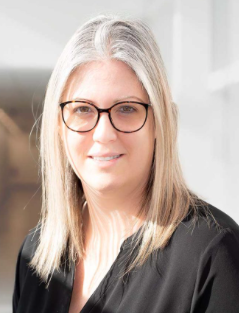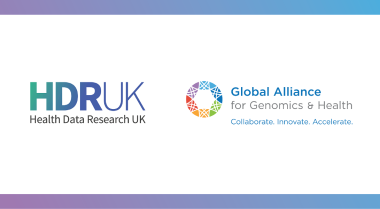Patient benefits are always our ‘North Star’
2 March 2023
The first HDR UK and University of Birmingham Immersion Week is all about working with real-world data and is being delivered by PIONEER, the Health Data Research Hub for Acute Care. Here we meet one of the speakers for the week, Suzy Gallier, who is PIONEER’s Technical and Deputy Director, to find out more about her, the course, and careers in health data science
Tell us about your involvement with health data science.
 I’m a mathematician through my training and background, rather than a health data scientist. It’s an emerging field and there wasn’t really anything called health data science when I was deciding what I wanted to pursue. But, all the skills I was trained with as a mathematician are applicable. PIONEER has large, diverse, longitudinal acute care datasets, so we employ a team of healthcare data scientists who work alongside statisticians and analysts.
I’m a mathematician through my training and background, rather than a health data scientist. It’s an emerging field and there wasn’t really anything called health data science when I was deciding what I wanted to pursue. But, all the skills I was trained with as a mathematician are applicable. PIONEER has large, diverse, longitudinal acute care datasets, so we employ a team of healthcare data scientists who work alongside statisticians and analysts.
What fascinates and motivates me is how data can change healthcare. It can bring innovation and have an impact for our patients’ futures, both in the short and long term.
People with data skills have lots of options – what is appealing about healthcare?
Clearly, there are numerous competitors out there. But we invest in our people and develop the professional skills they require to be successful in their career. It’s so much more than that though, health data science is about using data in ways that save lives – it makes a huge difference.
If you are the type of person who wants to focus their work on patient impact, then it could be ideal for you. With PIONEER, that’s exactly what we do. In health data science, you get to work with a variety of organisations and deliver exciting projects.
But every project must have that “North Star” of patient benefit.
In the world of health data science, progress is rapid. PIONEER was proud to be able to pivot and be heavily involved in the UK’s response to the COVID-19 pandemic. Our health data scientists played a vital role in monitoring vital areas such as infection rates and the vaccine rollout, as well as improving our understanding of the impact of COVID-19 on specific disease areas. Suddenly, the value of timely, secure access to health data skyrocketed, and putting people’s skillsets to use on large-scale data to really drive information, about something we knew little about and needed to understand very quickly, was incredibly rewarding.
Who is the immersion week for and why has it been set up?
We want to empower more people to understand and use data well, and we are trying to promote the field of health data science for graduates to consider as a career. The course is an opportunity for people who have the skillsets and drive that would fit in this world to understand what they would be working with, what the data looks like, and what the legalities and ethical considerations are around accessing it.
We will also set them a clinical challenge, so they can realise how quickly you can find information and patterns in data that could translate into meaningful health care insights.
What the potential innovations and challenges of working with health data?
Healthcare data’s primary use is to improve the delivery of clinical care, and it’s full of information that can tell us an enormous amount about improving services and treatments.
Sadly, the data is simply not recorded in the format that is needed for research. It’s also not designed in the way that clinical trial data is recorded for research.
So, we must help people understand how to make it research ready.
Sometimes, the data also comes from 30 or 40 different databases, in many different formats. Rather than having a single flat file, or a neat and tidy dataset with no missing fields and everything defined in the same units, you can find yourself working with data from disparate data sources. For instance, the multiple data sources may be using different units to measure results, so you could not necessarily assume that a blood result in one dataset is of an equivalent value in another dataset.
In essence, you’ve got to be really careful and to check that there are no errors.
PIONEER cleans the data received by its NHS partners, in order to improve the consistency, usability, and quality. This data cleansing exercise is a complex procedure involving multiple stages, and this course enables you to appreciate just what is involved to make Research Ready data, and equally to ignite an interest in pursuing this field as a career.
What next for people who like the idea of a career in health data science?
There are many different roles for health data scientists. We not only need to find more people, but the right people from every part of society and particularly from under-represented groups. At PIONEER, we are proud to support the HDR UK Black Internship Programme, which is an exciting endeavour to attract early career Black data scientists, who are under-represented in this field.
There are plenty of fantastic opportunities out there. There’s obviously the NHS, which wishes to maximise the use of its health data and has a lot to offer our candidates. But there are also roles within pharmaceuticals, large technology firms, and SMEs to consider. Above all, the possibilities within health data science are immense.
- Health Data Immersion Week – Working with Real-World Data, 27-31 March. For full details, click here.



